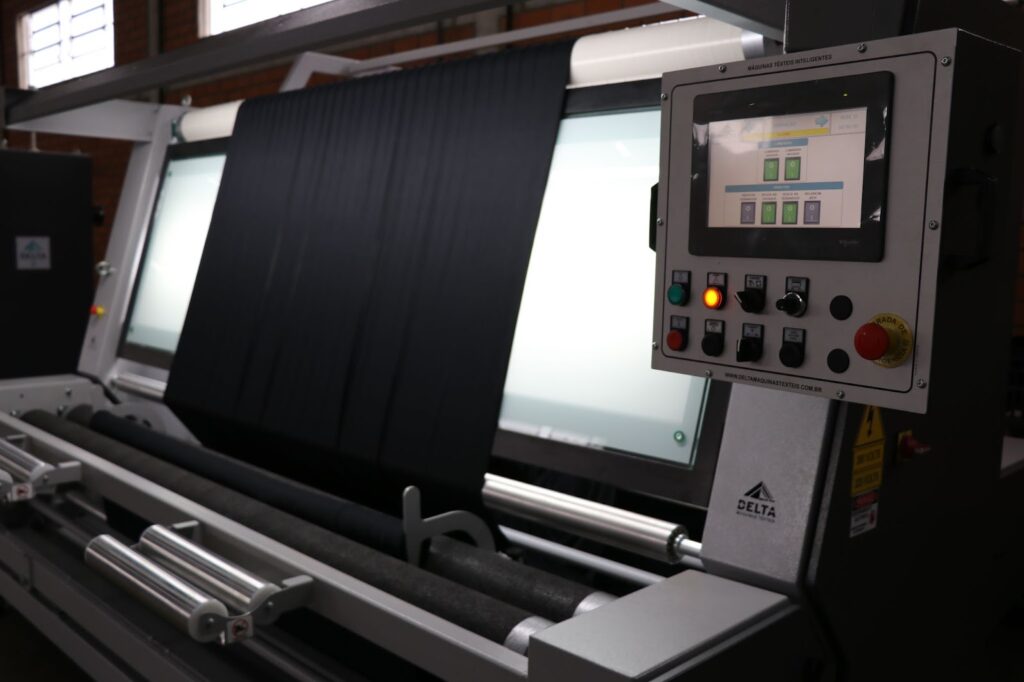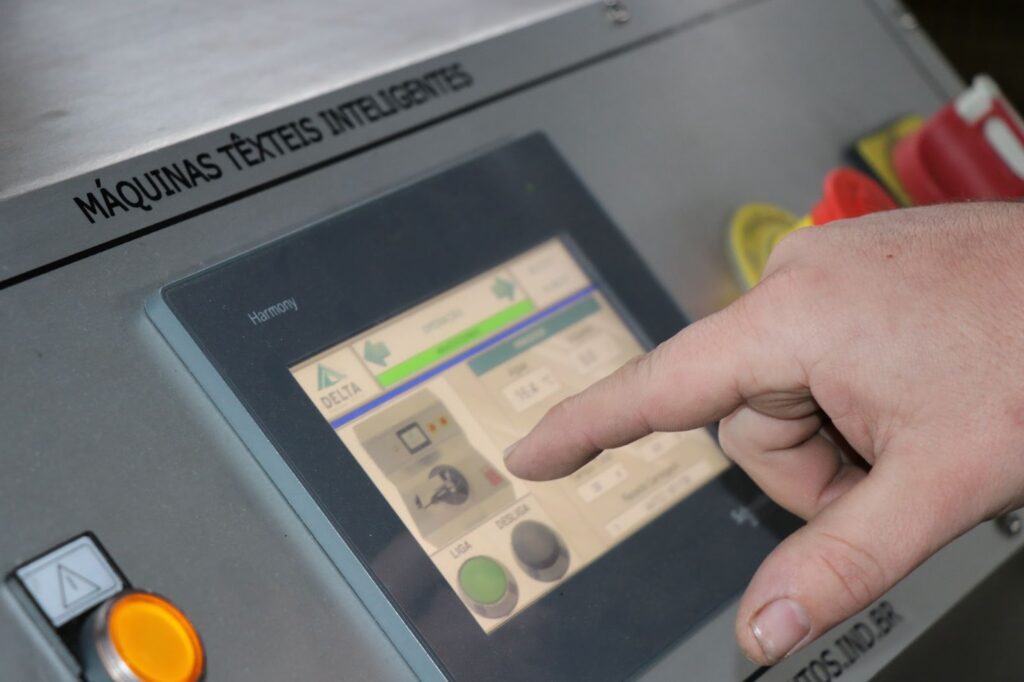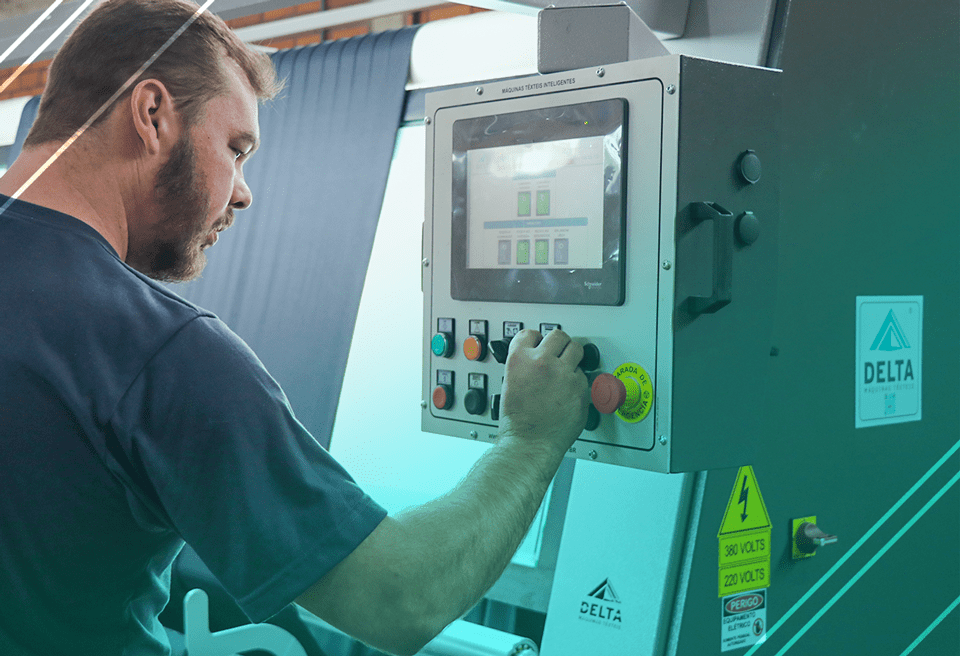Having a standard like NR12 to guarantee safety at work is essential. Because, when the job requires direct contact with machines and tools, you need to be careful to avoid accidents. Even more so in the textile sector, with so much equipment that can pose risks to employees.
That said, in this text you will see what NR12 is and its importance. In addition to knowing what happens when your industry does not operate according to standards.
What is NR12?
A Standard Regulatory of Nº 12 (NR12) was created in 1978 to regulatory articles 184 and 186 of Chapter V of the CLT, according to Ministry of Labor and Pensions. And in 2010 the standard needed to be revised and reissued to comply with digital transformations and new technologies. From time to time, the standards continue to be updated.
NR12 forms a set of standards and requirements to ensure safety in the operation and maintenance processes of industrial machinery and equipment, in addition to having certain requirements for their installation. Referring, then, to the minimum conditions to ensure greater safety in the work environment.
According to the International Labor Organization (ILO), from the state of Brasília, on the report from the Notifiable Diseases Information System (Sinan), in 2020, 40% of reported work accidents were serious, resulting in more than 130 thousand cases.
This just shows that even with the standard, there is still a certain difficulty in maintaining safety in the workplace, given the need to always be up to date with new rules and requirements. Not every industry is able to regularize itself as it involves a high investment cost, in addition to training, maintenance and training.
NR12 in the textile sector:
According to the study on work safety in the textile industry, the most relevant requirements of the standard, among the 19, for worker protection are:
- Electrical installations and devices;
- Starting, starting and stopping devices;
- Security systems;
- Emergency stop devices;
- Pressurized components;
- Material conveyors;
- Maintenance, inspection, preparation, adjustments and repairs, design, manufacture, use;
- Training of workers.
The study also reinforces the importance of manufacturers and importers to only sell machines and equipment that comply with NR12 standards, in addition to the need to have a manual containing safety information.

Importance of suitability
The standards concern the health of the operator as a whole. Therefore, textile industry equipment must be safe and ergonomic. The handling of many of these machines can generate health problems such as Repetitive Strain Injuries (RSI) and Work-Related Musculoskeletal Disorders (WMSDs).
It is worth noting that this also reduces worker productivity, in addition to causing irreparable damage to their health and well-being. Thus, by adapting to current legislation, you ensure a higher quality of work and life for your employee.
Benefits
In addition to the benefits to worker health and productivity, there are also benefits to market credibility. Industries that have machines that comply with the safety requirements of NR12 will stand out in commerce.
Currently, consumers are more aware and seek to purchase products from brands and companies that are committed to decent working conditions and that share the same ideals. This way, having machines suitable for the operation of your industry does not make you lose potential customers, quite the opposite.
And of course, with the increase in productivity and the reduction in health problems, there will be no need to always hire new professionals. This reduces production costs, avoiding wasted labor.
What happens when there is no adequacy of NR12 in the textile sector?
Failure to use machines suitable for NR12 can result in serious punishment. The Ministry of Labor can pay a visit at any time, without notice. And the scratchs for a working condition that does not comply with standards ranges from fines to imprisonment, in more serious cases.
It is worth noting that fines can be up to 50 times the value of the machinery if the site is closed. And all these measures generate financial losses for the industry, both due to the impossibility of working and the need to pay punishments.
Added to this, incorrect maintenance of the machinery can cause damage, which will require time and money to purchase another machine. Hence the need to maintain frequent and effective quality control.

Delta textile machines meet NR12 requirements
Delta Máquina Têxteis’ equipment stands out in the market precisely because it is one of the few that meets the safety and ergonomic requirements of NR12, which facilitates and encourages productivity. Being one of the only exhibiting brands, during the Febratex event in 2018, to be congratulated and approved in the NR12 suitability analysis.
Furthermore, to work with the import of equipment it is necessary to comply with standards. This is yet another differential for Delta, as there are no impediments related to its machines.
Whether your segment is Knitting, Weaving, Finishing, Dyeing and Clothing, Delta has the ideal and safe equipment and exclusive technology.
Invest in equipment suitable for NR12 in the textile sector
This article showed the importance of regulatory standards to ensure greater safety, ergonomics and well-being for operators. In addition to having demonstrated, through data and studies, the benefits and risks for the industry and workers when there is no concern about labor protection.
If you want to know more about the subject and how Delta Máquina Têxteis can help you, Click here to talk to one of our experts.


